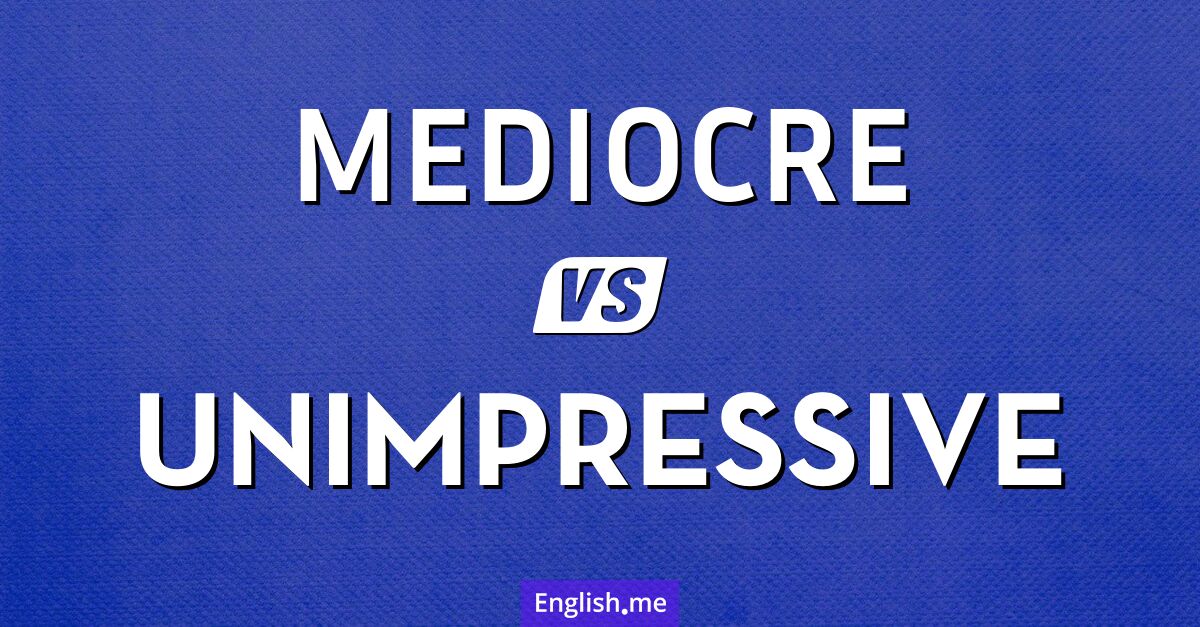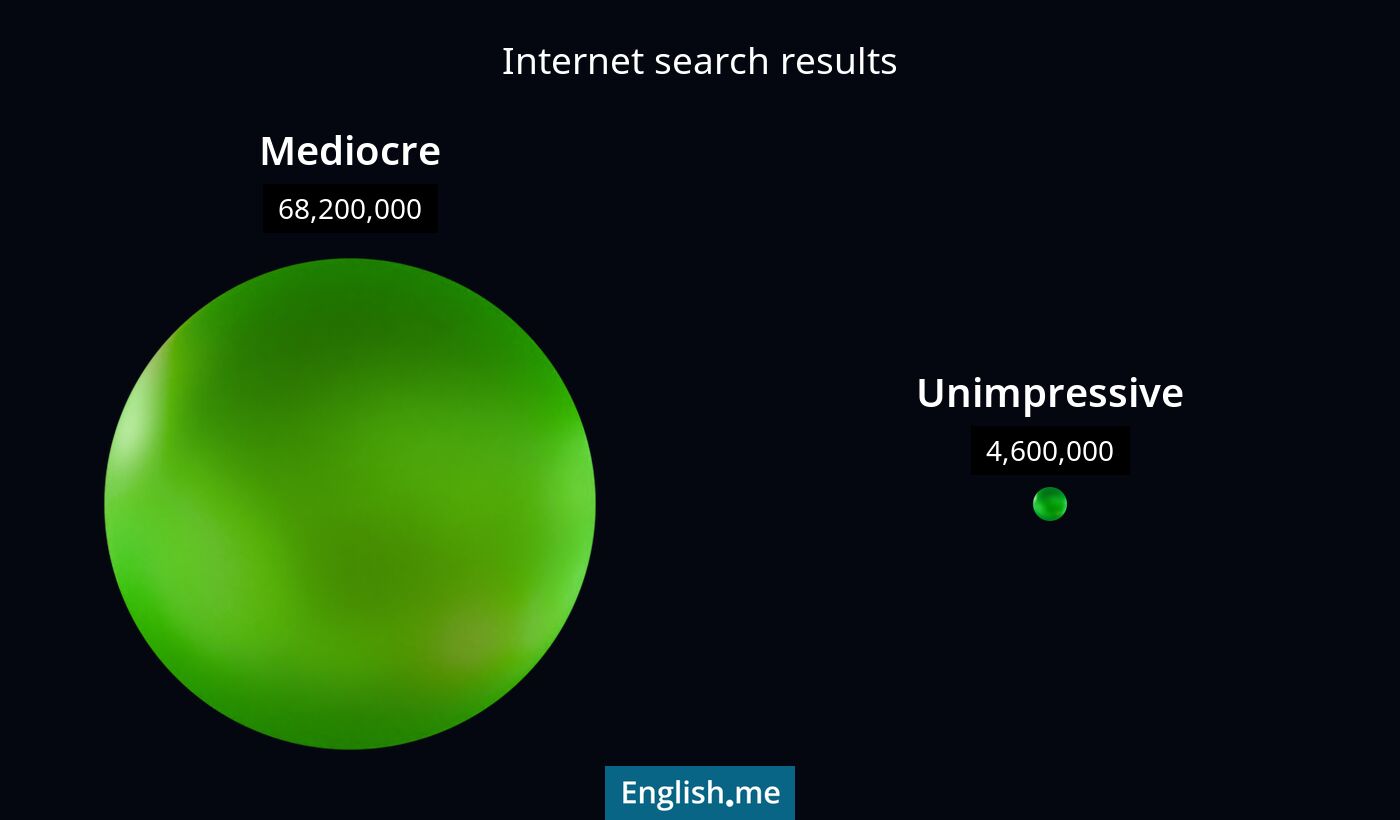"Mediocre" vs. "unimpressive": a subtle difference in disappointment
Reviewed and edited by  Lloyd Cooper 15/01/2025, 01:47
Lloyd Cooper 15/01/2025, 01:47
English.me team member

 What is similar?
What is similar?
Both "mediocre" and "unimpressive" describe something that is not outstanding or exceptional. They convey a sense of something being average, ordinary, or failing to meet expectations.
 What is different?
What is different?
"Mediocre" implies that something is of moderate or average quality, neither good nor bad, but just acceptable. "Unimpressive" suggests that something fails to make a strong impact or lacks notable qualities, possibly indicating it is below average. "Mediocre" focuses on the middling quality itself, while "unimpressive" emphasizes the lack of impact or failing to impress.
 Which one is more common?
Which one is more common?

 Examples of usage
Examples of usage
Mediocre- The movie was mediocre, neither terrible nor great.
- Her performance was mediocre compared to the other candidates.
- Jack described the meal as mediocre, mentioning it lacked flavor.
- The new product launch was unimpressive and failed to excite customers.
- Despite all the hype, his speech was unimpressive and lacked substance.
- The building's design was unimpressive compared to others in the area.

 English
English español
español française
française italiano
italiano deutsche
deutsche 日本語
日本語 polski
polski česky
česky svenska
svenska Türkçe
Türkçe Nederlands
Nederlands